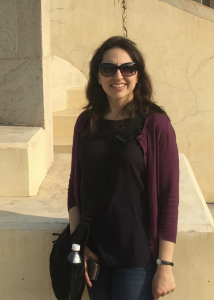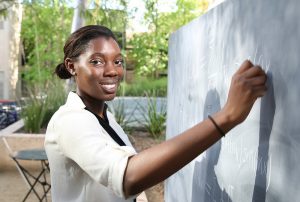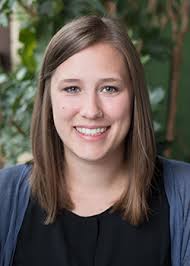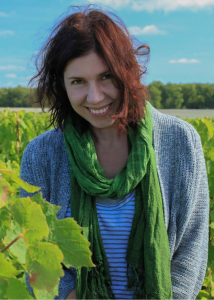Bios of Invited Speakers
Career Panelists
Timothy Thornton — Associate Professor, UW Biostatistics
Dr. Timothy Thornton is the Robert W. Day Endowed Professor of Public Health and Associate Professor in the Department of Biostatistics at the University of Washington. He is also an affiliate investigator at the Fred Hutchinson Cancer Research Center. His research lab develops and applies statistical methods and software for the analysis of large-scale genetic data to gain a better understanding of the genetic contributions to human health and diseases. His research largely focuses on genetic analyses in ancestrally diverse populations, and particularly U.S. minority populations who often bear a disproportionate burden for many diseases, including African Americans, Hispanics, and American Indian and Alaska Native populations. He is an investigator for several projects funded by the NIH for the genetics of complex disorders in diverse populations. Dr. Thornton received a BS degree in mathematics from Hampton University and a PhD in statistics from the University of Chicago. Prior to joining the faculty at the University of Washington, he was a University of California President’s Postdoctoral Fellow in the Department of Statistics at UC Berkeley.
Kristina Klinkner is a senior machine learning scientist at Amazon, where she builds machine learning, computer vision, and automated decision systems to improve operations. She’s been at Amazon over 7 years, with previous experience working on research problems for proprietary trading algorithms at a hedge fund, and search at Yahoo. Her main interest is in machine learning with impact on real, physical systems, which can successfully translate to sustainable production environments, at the scale appropriate to Amazon.
Afshin Mashadi-Hossein — Biostatistician I, NanoString Technologies
Afshin Mashadi-Hossein became involved with building ‘omics tools at a time when the increasing capacity of these tools made the need for processing and analysis of the data they generated every bit as critical as the need for advances enabling the data generation. Inspired by this observation, while he started his career as an engineer working on the development and launch of the NanoString nCounter platform, he sought training in biostatistics. After completing a Masters degree at the UW Department of Biostatistics, he rejoined NanoString’s newly-formed biostatistics team, where he has been fortunate to be able to contribute to development of diagnostic applications as well as research products on the NanoString platform.
 Sahar Zangenah — Staff Scientist, Fred Hutchinson Cancer Research Center
Sahar Zangenah — Staff Scientist, Fred Hutchinson Cancer Research Center
Dr. Sahar Zangenah holds a PhD in Statistics from the University of Michigan. She is currently a Staff Scientist in the HIV Prevention Network at the Vaccine and Infectious Disease Division of Fred Hutch Research Center. Sahar is broadly interested in Population Health Sciences. As a staff scientist at FHCRC she brings her expertise in statistical analysis with missing data and analyzing data collected through complex sampling designs, such as sample survey data, to population health sciences. Her research has been recognized by several awards from the American Statistical Association.
Graduate Student Panelists
Zora Yang is a first-year MS student in the Department of Biostatistics. She is broadly interested in statistical learning / machine learning, high-dimensional feature selection and visualization, and bioinformatics. After graduation, she plans to work as a data scientist.

Amarise Little is a second-year PhD student in the Department of Biostatistics. Her research focuses on accounting for admixture in genetic studies, with application to identifying genetic variants associated with platelet production in humans.

Ernesto Ulloa is from Mexico City where he obtained a B.S in Applied Mathematics. Currently, he’s a third year student in the PhD program in Biostatistics where he is working on improving and assessing statistics methods used for causal inference. His overall career aim is to strengthen the relationships between applied areas of health research and biostatistics.

Kelsey Grinde is a fourth-year PhD student in the Department of Biostatistics. Her research focuses on developing methods to address confounding and multiple testing in the context of large genetic studies that investigate complex diseases in populations with diverse ancestry. She plans to become a faculty member at a liberal arts institution post-graduation.

Brayan Ortiz is a fifth-year PhD student in the Department of Biostatistics. He works on finite dimensional approximations to nonparametric penalized regression problems. He will be working at Amazon after he graduates, continuing to focus on modeling and optimization.

